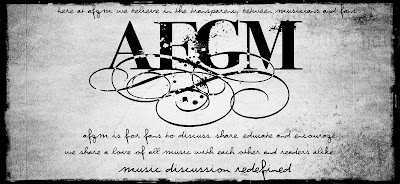What about your first encounter with a new band? Album cover looks good, record label backed, notable touring schedule, but what could be that remaining factor in which you pull out your cash, debit or credit?
Well, low a behold a clinical study was conducted to see if your brain wave patterns correlated with the amount of money you are willing to spend on music. According to the study conducted by lead researcher Valorie Salimpoor, participants would browse through 60 tracks they had never heard before and were encouraged to use their own money to acquire the ones they wanted. These participants underwent MRI scans as they channeled the music selection and specified how much they were willing to spend on each song. Music was available either for free, 99 cents, $1.29 or $2.
"This is the part of the brain that's responsible for forming expectations over time. This plays a big role in music because, as music is unfolding, we're forming a lot of expectations." -Valorie Salimpoor
So how did this research team come to the conclusion that music selection and price correlated with brain waves? Salimpoor said the amount of neural activity originating in the nucleus accumbens was a very accurate predictor of how much the subjects were enjoying each individual song and what price they were willing to pay to obtain it.
"The fact that the nucleus accumbens is working so coherently with this area suggests that the predictions we're making while we're listening to new music are really stemming from the sounds we have heard in the past and these rules that we've internalized based on our culture, based on the music we listen to and the genres we prefer." -Salimpoor

Do you happen to agree with the findings? Does it happen to be a series of events that seems to have a relation with the findings they pursued or can they actually use this information to predict future sales? One has to wonder as well if this type of information can/will eventually lead it's way to top record labels and their marketing departments? New type of R&D on the way? I got some eggs in that basket for sure.
You can read the full article from CBC over here.
Now as much trolling as one could take, I am always interested in seeing what fellow article readers have to say about these types of journalistic endeavours. Commentor "Crommunist" was one that seemed to catch my attention...
"Lots of people snarking this study, saying that it's useless. I beg to differ.
An emerging part of the area of research I work in has to do with finding ways to incorporate individual preferences into how we write and implement health care policy. Finding a rigorous way to measure what people prefer is actually incredibly difficult. Part of how we "weight" preferences is to ask people how much they would be willing to give up in order to get something they want - I should point out that NOBODY in my field (as far as I know) is looking to privatize health care. We can get an idea of how STRONGLY someone prefers something by how much they're willing to give up for it.
The study in this article is certainly preliminary, but having a way to measure preference that is consistent is actually a pretty big deal. It has lots of applications for private industry, yes, but also for public policy. This is the beauty of basic science - findings are often applicable to a wide variety of fields." -Crommunist (CBC commentor)
(photo courtesy of Vinceranda)
This seems to once again correlate with another similar study and article that Salimpoor has been conducting. This time, she is examining your dopamine levels to certain songs and parts of a song.
In this study the researchers used only instrumental music, showing that voices aren't necessarily needed to produce the dopamine response they were hoping top attain. It will take yet further work and investigation to study how voices might contribute to the pleasure effect.
Salimpoor and the other researchers described brain-scanning experiments with eight volunteers who were chosen because they reliably felt chills from particular moments in some favourite pieces of music (aka music giving you goosebumps). That type of characteristic let the experimenters study how the brain handles both anticipation and arrival of a musical rush.
"The area linked to anticipation connects with parts of the brain involved with making predictions and responding to the environment, while the area reacting to the peak moment itself is linked to the brain's limbic system, which is involved in emotion." -Robert Zatorre
To assure there were multiple variables, the study volunteers selected from a wide range of genres — from classical and jazz to punk, tango and even bagpipes (huh?). The most popular selections for listeners were Barber's Adagio for Strings, the second movement of Beethoven's Ninth Symphony and Debussy's Clair de Lune.
For more information on this study, you can read the remainder of that article here. I personally am looking forward to seeing what science holds for music lovers in the future!



No comments:
Post a Comment